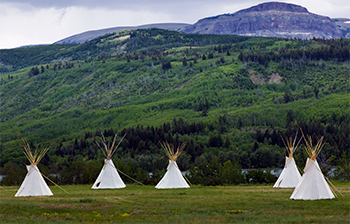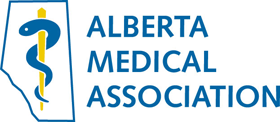Indigenous health and cultural resources

Overseen by the AMA’s Indigenous Health Committee, the resources, reference materials and news curated herein are intended to increase AMA member physicians’, resident physicians’ and medical students’ knowledge and understanding of Alberta’s Indigenous populations and their history, for purposes of “identify(ing) and clos(ing) the gaps in health outcomes between Aboriginal and non-Aboriginal communities…” (#19 - Health - TRC Calls to Action)*.
*Several of the resources are based on recommendations included in the TRC’s seven, health-related Calls to Action (Health, #18 - #24), including resources on the history and legacy of residential schools in Canada; the United Nations Declaration on the Rights of Indigenous Peoples; and resources on Treaty, Treaty Rights and International Rights.
Systemic racism in health care
Canadian media – September 30, 2020
Beginning with a September 30 news story reporting the Joliette, Quebec in-hospital death of Joyce Echaquan, a 37-year-old Atikamekw woman, this collection/listing of health care systemic racism-related news articles/postings is primarily gathered from electronic, print and radio media outlets across Canada (as curated in AMA News for Docs).
Residential schools and Canadian reconciliation
National Centre for Truth and Reconciliation
National Centre for Truth and Reconciliation website. A shared vision held by those affected by Indian residential schools was to create a place of learning and dialogue where the truths of their experiences were honoured and kept safe for future generations.
Truth and Reconciliation Commission of Canada
- Findings (www.trc.ca)
- TRC Summary of the Final Report: Honouring the Truth, Reconciling for the Future
- TRC Volume 1: The History Part 1, Origins to 1939
- TRC Volume 1: The History Part 2, 1939 to 2000
- TRC Volume 2: The Inuit and Northern Experience
- TRC Volume 3: The Métis Experience
- TRC Volume 4: Missing Children and Unmarked Burials
- TRC Volume 5: The Legacy
- TRC Volume 6: Reconciliation
- TRC Calls to Action
Academic
The Association of Faculties of Medicine of Canada
University of Alberta – Indigenous Canada - Course
- About the Course
Indigenous Canada is a Massive Open Online Course (MOOC) from the Faculty of Native Studies that explores Indigenous histories and contemporary issues in Canada.
University of Manitoba – First Nations, Metis and Inuit health information
University of Ottawa - Society, the Individual and Medicine
AMA/Alberta Health Services/Provincial
Alberta Medical Association
- Resources from AMA Indigenous Cultural Safety Training (staff) - January 2019 (source: Brenda Reynolds, training facilitator)
This comprehensive list of resources includes links to reports, statements and a video addressing:- the history and legacy of residential schools in Canada
- Indian hospitals; and
- the Truth and Reconciliation Commission report
- Equitable and healing Indigenous health care - Trust, knowledge, relationships - Alberta Doctors’ Digest, March-April 2021. Addressing a variety of topical issues from systemic racism in health care to the impact of colonization and more, this special issue features more than 10 thought-provoking articles (and a video) by Indigenous physicians, nurses, a medical student, Traditional Knowledge Keepers and academic leaders of Indigenous health initiatives and education.
- Resources from AMA Indigenous Cultural Safety Training (staff) - January 2019 (source: Brenda Reynolds, training facilitator)
This comprehensive list of resources includes links to reports, statements and a video addressing:- the history and legacy of residential schools in Canada;
- Indian hospitals; and
- the Truth and Reconciliation Commission report
- Examples of statements acknowledging treaty territory and traditional lands in Alberta (pdf)
To aid AMA members and staff in preparing for meetings and gatherings, or drafting speaking points, we have provided the following examples of statements acknowledging treaty territory and traditional lands suitable for each of Alberta’s three numbered treaties and Métis audiences. This document includes links to supplemental resources including maps and information pertaining to Alberta’s numbered treaties.
Alberta Health Services
- Alberta Health Services - Indigenous Health
- Alberta Health Services - Indigenous Health Program (Videos)
The Alberta First Nations Information Governance Centre
Community resources for Indigenous Peoples
- Resources for Indigenous Peoples list (November, 2018)
- Canadian Native Friendship Centre (Edmonton)
- Alberta Native Friendship Centres Association (provincial)
National
Government of Canada
- First Nations and Inuit mental health wellness - Government of Canada
- National First Nations & Inuit Hope for Wellness Help toll-free line: 1.855.242.3310
- Online chat at hopeforwellness.ca; open 24 hours a day, 7 days a week.
World
United Nations Declaration on the Rights of Indigenous Peoples
The United Nations Declaration on the Rights of Indigenous Peoples (UNDRIP) was adopted by the General Assembly on Thursday, 13 September 2007, by a majority of 144 states in favour, 4 votes against (Australia, Canada, New Zealand and the United States) and 11 abstentions (Azerbaijan, Bangladesh, Bhutan, Burundi, Colombia, Georgia, Kenya, Nigeria, Russian Federation, Samoa and Ukraine)
Mental health
Centre for Suicide Prevention
Trauma Toolkits - Suite of three, focused on trauma: Trauma and suicide, Trauma and suicide in children and Trauma and suicide in Indigenous people.
A branch of the Canadian Mental Health Association, the Centre for Suicide Prevention is an education centre of excellence, based in Calgary. For over 35 years, the centre has been equipping Canadians with the information, knowledge and skills necessary to respond to people at risk of suicide.
